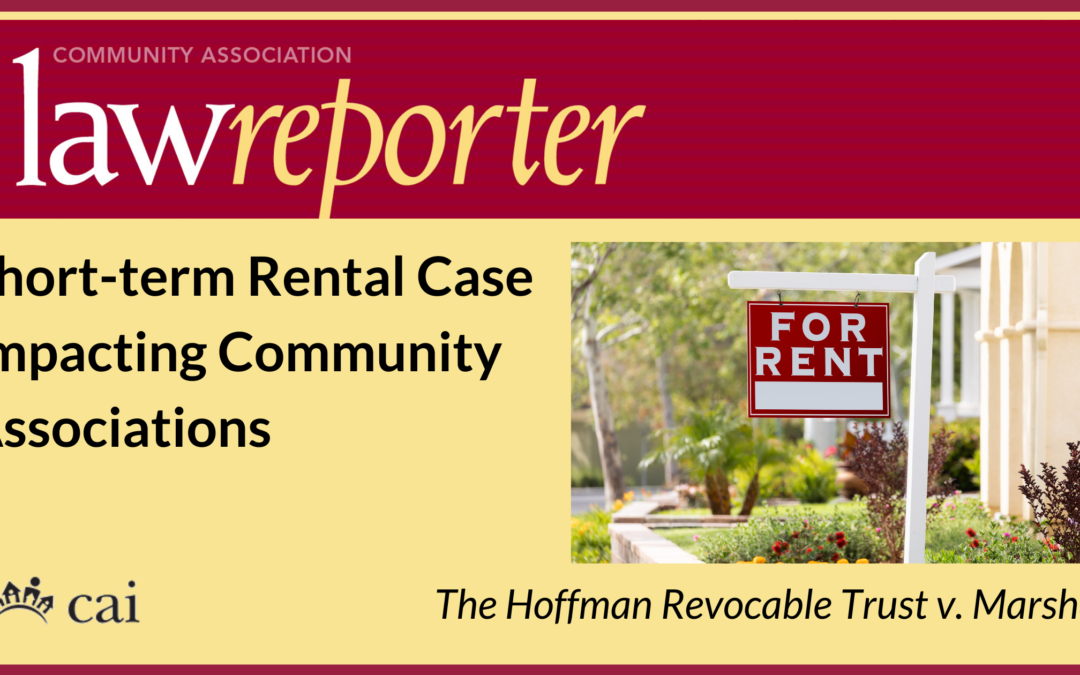Community Association Law Reporter is a valuable CAI member benefit that provides a monthly summary of important legal cases impacting community associations. To spread the word about this resource, I will be highlighting a case approximately once a month to offer greater insight for all our subscribers.
In February, the Court of Appeals of Kentucky ruled that using a property for a short-term rental didn’t classify as residential use and violated a restriction limiting the property’s use to a private summer residence.
The homeowners in the case (The Hoffman Revocable Trust v. Marshall) purchased a home in a community association, which had restrictions, reservations, and covenants on how the property could and could not be used, including that the property “shall be used only for the purpose of constructing and using a private summer residence or for other private recreation purposes; provided, the occupancy of a residence for private residential purposes at times other than the summer season would not be deemed a breach of the occupancy restriction.”
After purchase, the homeowners placed the home on vacation rental websites, directly violating the association’s covenants. This ruling directly aligns with CAI’s public policy on short-term rentals.
CAI supports short-term rental regulations that are consistent with the association’s governing documents, federal, state, and local laws, and that protect and preserve the ability of community association homeowners to manage their affairs. The nature of short-term rentals is not intuitively harmonious with the community association housing model, which focuses on bringing people together, strengthening neighborhood bonds, and promoting a sense of community and belonging. Volunteer homeowners, who are elected by their neighbors to set policies and oversee association operations, and to act in the best interest of the community, are the center of community association governance.
CAI opposes governmental regulations that would intrude on a board of directors’ autonomy to serve the best interest of the association. Short-term rental regulation should not impair association contractual covenants and take decision-making authority away from community association homeowners. This degrades the very core of community association governance, which is based on private contractual obligations of the community’s homeowners. Learn more about CAI’s short-term rental public policy here: https://www.caionline.org/Advocacy/PublicPolicies/Pages/STR.aspx
The case in Kentucky was highlighted in the April issue of CAI’s Community Association Law Reporter, a monthly, members-only newsletter that provides a brief review of key court decisions impacting community associations throughout the U.S. Cases deal with developer liability, powers of the association, use restrictions, covenant enforcement, assessment collection, and much more.
In addition, the College of Community Association Lawyers (CCAL) prepares a case law update annually. Summaries of these cases, along with their references, case numbers, dates, and other data, are available at https://www.caionline.org/Advocacy/LegalArena/Pages/caselaw.aspx



